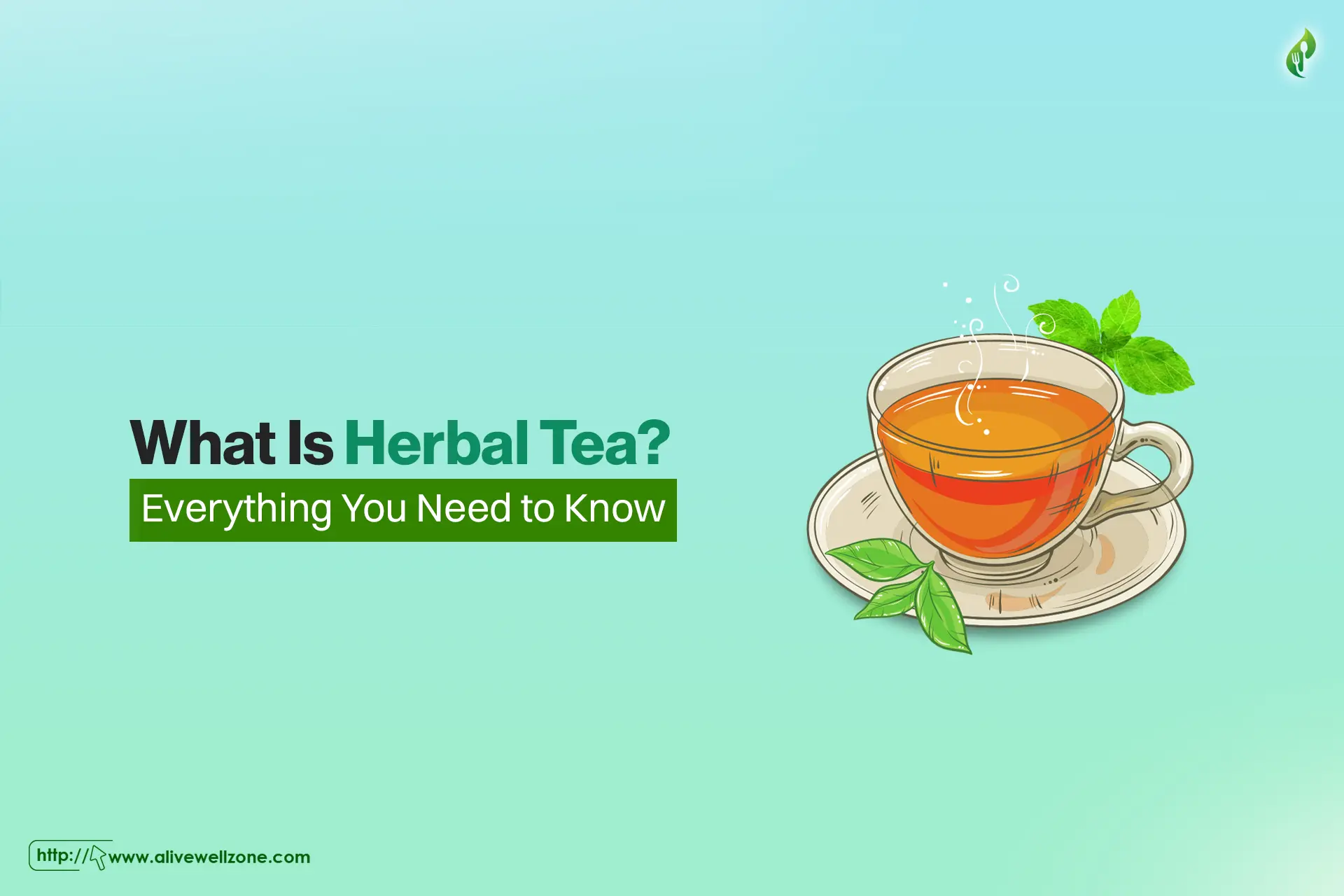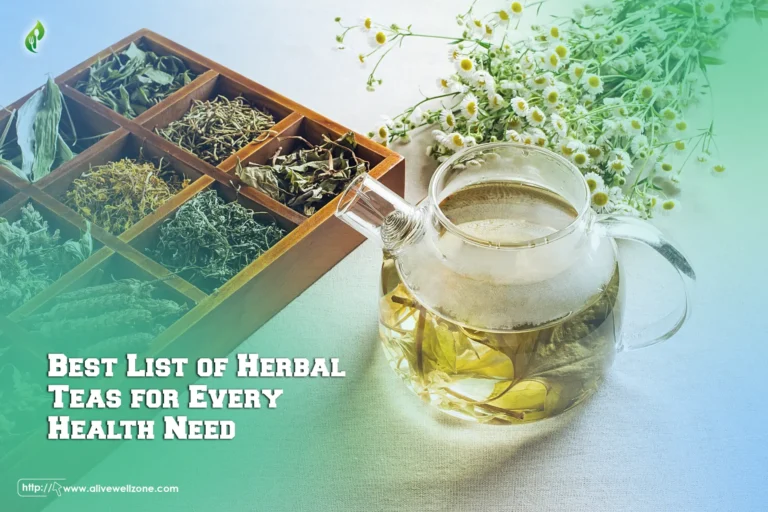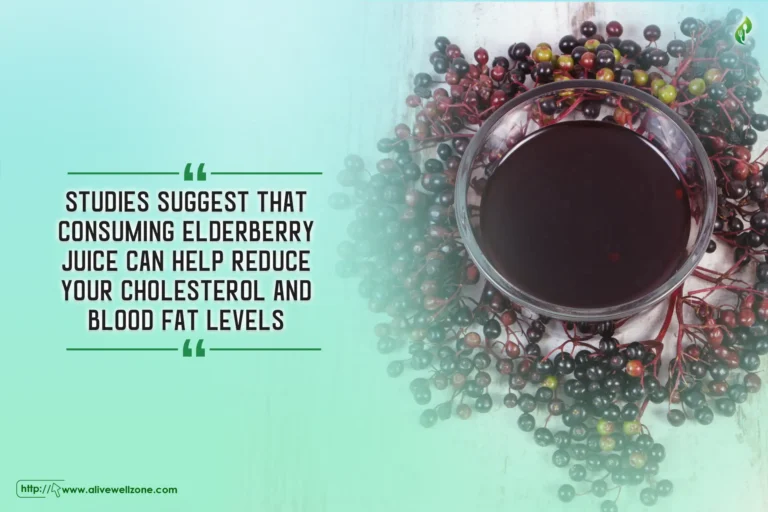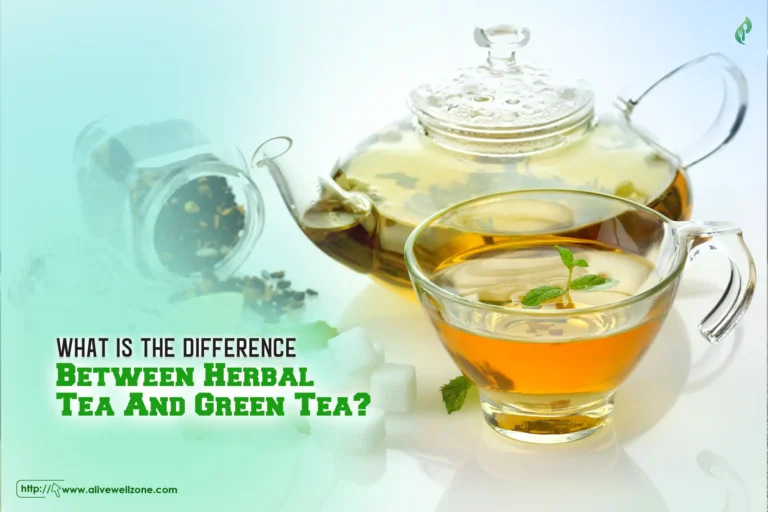
Last Updated on May 21, 2025 by Helena Akter
Struggling to find a drink that offers relaxation with health benefits? Well, you may have heard of herbal teas. However, if you’re considering taking it, you should know all the details of it. So, what is herbal tea?
Herbal tea is a plant-based tea made of ingredients like herbs, fruits, and spices. It offers you various health benefits without caffeine. Unlike regular tea, it doesn’t use Camellia sinensis leaves. And there are many popular types including chamomile, rooibos, peppermint, hibiscus, etc.
We’ll talk about all the types, explore its origins, and how it’s made. Plus, you’ll know what sets it apart from oolong, chamomile, and green tea. So, keep reading to take your tea experience to the next level!
Key Takeaways
- Herbal Tea Basics: Herbal teas, unlike regular tea, are made from fruits, flowers, herbs, or spices. They’re typically caffeine-free and have been used for centuries for health benefits and relaxation.
- Health Benefits: Herbal teas can help digestion, support relaxation, help defend against colds, and may reduce the risk of chronic diseases like heart disease and diabetes. Popular varieties include chamomile, peppermint, hibiscus, and ginger.
- Safety and Considerations: While generally safe, herbal teas can interact with medications or cause allergic reactions. So, you should drink them in moderation and consult a doctor if you have health concerns.
What is Herbal Tea?
Herbal tea is a drink that’s usually made from plant-based ingredients like fruits, flowers, herbs, or spices. It can be prepared using methods like infusion, decoction, or maceration.
Typically, they’re created by soaking dried herbs, fruits, flowers, or spices in hot water.
These drinks, often called tisanes, have long been used for their potential health benefits and as natural remedies. Plus, they’re different from regular tea because they don’t contain leaves from the Camellia sinensis plant.
Usually, herbal teas are caffeine-free and can be a calming drink. Some popular ingredients for herbal teas include peppermint, chamomile, hibiscus, ginger, and lavender.
While herbal teas can be healthy, you must drink them in moderation. If you have health concerns, talk to a doctor before drinking herbal tea. Also, check for added sugars or artificial ingredients.
Origins of Herbal Tea
Herbal tea has a long history. Ancient civilizations like Egypt and China used plants, roots, and herbs to make tea for medicine. People drank these teas to get better and stay healthy.
The Greek doctor Dioscorides wrote about over 600 healing plants in the year 1 AD. Many of these plants could be used to make tea.
In Egypt, people found dried peppermint leaves in pyramids from 1000 BC. They probably used these leaves to help their stomachs. People used herbal teas for health, relaxation, and spiritual connection.
Herbal tea is still popular today. In fact, IBISWorld projects that herbal tea sales will grow at an average annual rate (CAGR) of 0.2%, reaching $470 million by the end of 2024.
What are the Health Benefits of Herbal Tea?
Let’s take a closer look at some of the key benefits they bring.

1. Digestive Support
Herbal teas can work great for your digestive health. For example, studies on animals suggest that peppermint tea helps relax your digestive system. So, it may ease your discomfort or pain.
Dandelion tea is another great choice, as it could help lower stomach acid and reduce the risk of ulcers.
2. Rejuvenation
If you’re looking to relax, teas like chamomile and linden are excellent options. Chamomile tea has gentle, calming properties that can help you fall asleep more easily.
Linden tea may also promote relaxation by acting in a way similar to GABA, a chemical that helps calm the brain. However, further research is needed to fully understand how this works.
3. Cold and Flu Defense
When cold and flu season arrives, herbal teas such as ginger and turmeric can help you out. Ginger root is known for its ability to ease nausea, and reduce inflammation. It can even help lower blood sugar levels.
Also, ginger can help with muscle pain and sore throats, which are common cold symptoms.
Turmeric, on the other hand, contains powerful antioxidants called curcuminoids. Research in humans has shown that curcumin has anti-inflammatory, antidiabetic, and antioxidant effects.
So, by drinking turmeric tea, you may benefit from these properties. You’ll get extra defense during flu season.
4. Prevent Disease
Herbal teas are packed with anti-inflammatory and antioxidant compounds. They can help protect you against long-term conditions such as heart disease, cancer, and diabetes.
For example, a study found that rooibos tea may help lower your blood pressure. This is because it blocks a substance called ACE or angiotensin-converting enzyme.
A more recent study showed that hibiscus tea might be better at lowering LDL cholesterol than other teas or even a placebo.

5. Slow Aging
Some herbal teas can help your skin look younger. They fight off free radicals, which can damage your cells. Take hibiscus tea, for example, which has a lot of antioxidants.
Now, hibiscus tea might also help stop collagenase, an enzyme that breaks down collagen. It can help reduce wrinkles and make your skin smoother.
6. Brain Stimulation
Drinking herbal teas can help your brain get more blood. This can make you focus better. Cinnamon tea might be especially good for this. Some studies suggest that cinnamon could help slow down or even stop Alzheimer’s disease.
Plus, tests on animals have shown that cinnamon might stop brain changes that are linked to Alzheimer’s. It might even help fix some of the problems that Alzheimer’s causes.
Herbal Teas You Should Try
Here’s a list of some herbal teas you can easily add to your daily routine.

1. Peppermint Tea
Peppermint tea has a cool, refreshing taste and is free of caffeine. It can help digestion, relieve headaches, and may help with irritable bowel syndrome symptoms. Its fresh aroma also makes it a good natural breath freshener.
2. Hibiscus Tea
Hibiscus tea is known for its deep red color and tart, cranberry-like taste. It can help lower both blood pressure and cholesterol. It is high in vitamin C which is good for the heart and improves your immune system.
3. Ginger Tea
Ginger tea is known for helping with nausea and indigestion. It has antioxidants that help digestion, reduce inflammation, and can help with cold symptoms and menstrual pain.
4. Lemon Balm Tea
Lemon balm tea has a gentle, lemony flavor. It’s commonly used to improve mood and reduce anxiety. Also, it can help you relieve stress, improve sleep, and may support better brain function.
5. Lavender Tea
Lavender tea has a calming floral flavor, making it ideal for relaxation. It helps ease stress, anxiety, and insomnia. Some also use it to relieve mild digestive problems.
6. Turmeric Tea
Turmeric tea is known for its strong anti-inflammatory benefits. It can help reduce joint pain and improve digestion. You can enjoy its warm, earthy flavor by adding a pinch of black pepper for extra absorption.
7. Rosehip Tea
High in vitamin C, rosehip tea strengthens the immune system and promotes healthy skin. It’s also used to reduce inflammation and can support joint health.
8. Ginseng Tea
Ginseng tea is a natural energy booster. It helps reduce stress, supports memory and concentration, and may help regulate blood sugar levels. It’s also full of antioxidants.
9. Rooibos Tea
It’s also called red bush tea, is made from the leaves of the Aspalathus linearis shrub. It’s rich in antioxidants, supports heart health, and may reduce inflammation. You can enjoy this South African herbal tea fermented or unfermented, with or without milk.
10. Dandelion Root Tea
Dandelion root tea is often used to support liver health and acts as a natural diuretic. It helps flush out toxins, helps digestion, and can relieve bloating.
How to Make Herbal Tea Easily?
Making herbal tea at home is easy and lets you customize the flavors to your liking. With just a few simple steps, you can create a refreshing and calming drink that can be enjoyed hot or cold.
Here’s how to make a perfect cup of herbal tea:
- Measure 1 teaspoon of dried herbs or 2 tablespoons of fresh herbs of your liking.
- Boil water and let it cool slightly to just below boiling.
- Pour the hot water over the herbs.
- Let the herbs steep for about 5 minutes, keeping the cup covered to lock in the flavor.
- Strain the tea into a cup.
- Sweeten with honey or stevia if desired and enjoy!
Is Oolong Tea an Herbal Tea?
No, oolong tea is not an herbal tea. It’s a traditional Chinese tea made from the leaves of the Camellia sinensis plant. This is the same plant used for green and black teas.
Oolong tea is different from herbal tea. Herbal teas are made from different herbs, flowers, and other plants. Whereas, oolong tea is made from tea leaves.
Here, the key difference between oolong and other types of tea lies in the processing. Oolong tea is partially fermented, placing it between green tea, which is not fermented, and black tea, which is fully fermented. This gives oolong its unique flavor and characteristics.
While herbal teas don’t contain caffeine, oolong tea does. So, it provides a boost in alertness by stimulating your nervous system.
Is Chamomile Herbal Tea?
Yes, chamomile is an herbal tea. In fact, Chamomile tea is one of the most popular herbal teas in the world, with about a million cups consumed every day.
It’s made from the dried flowers of the chamomile plant, which belongs to the daisy family (Asteraceae). The plant is known for its small white petals and yellow center, resembling a tiny daisy.
Plus, chamomile tea has been used for centuries in herbal medicine due to its calming and soothing properties. Many people enjoy it to help with sleep, ease stress, or simply relax.
The tea has a light, floral flavor with a touch of natural sweetness, making it a simple and enjoyable drink to prepare.
Is Green Tea Considered Herbal Tea?
No, green tea is not considered herbal tea. Green tea is made from the leaves of the Camellia sinensis plant, which makes it a true tea.
Herbal teas, in contrast, are brewed from a mix of herbs, flowers, spices, or fruits. Plus, they don’t include any leaves from the Camellia sinensis plant.
Even though some flavored green teas may include herbs or botanicals, which can blur the lines, the main difference lies in their source. Green tea retains its own distinct identity due to its processing and health benefits, particularly its antioxidants.
On the other hand, herbal teas are in their own category with different ingredients and often no caffeine.
Safety Considerations While Taking Herbal Tea
Herbal teas are often viewed as a natural and healthy option, but it’s vital to be aware of some safety concerns. While generally safe, certain factors should be considered to avoid potential risks —
I. Medication interactions
Herbal teas like peppermint may interact with medications such as blood thinners, leading to unwanted side effects.
II. Allergic reactions
Some people may experience allergic reactions to herbal teas, particularly chamomile, which can cause anything from mild discomfort to severe reactions in those with ragweed allergies.
III. Moderation
Since the safety of consuming large amounts of herbal teas isn’t well researched, it’s best to drink them in moderation.
IV. Pregnancy and Breastfeeding
Some herbs, like licorice or certain detox teas, can be harmful during pregnancy or while breastfeeding. Always consult your doctor before trying new herbal teas.
V. Consult a healthcare provider
If you have underlying health conditions or are on medication, it’s a good idea to discuss herbal tea consumption with your doctor to avoid potential issues.
Final Words
So, what is herbal tea? In short, it’s a natural, caffeine-free option made from herbs, flowers, and spices. This one is different from regular tea, which comes from the Camellia sinensis plant.
Whether you’re sipping chamomile to relax, ginger to ease digestion, or hibiscus for heart health, there’s a blend for everyone. As we’ve discussed, herbal teas have a long history and offer various health benefits when enjoyed in moderation.
As you explore new flavors and benefits, remember to listen to your body and consult a doctor if needed.
Frequently Asked Questions and Answers about Herbal Tea
Does herbal tea have caffeine?
No, most herbal teas don’t have caffeine since they’re made from plants that don’t contain caffeine. However, certain herbs like guayusa and yerba mate do have caffeine and may be included in some blends. So, always check labels if you’re avoiding caffeine.
Is chai tea Herbal?
No, chai tea is not an herbal tea. Chai tea is made from black or green tea leaves, which come from the Camellia sinensis plant, making it a true tea. Herbal teas, also called tisanes, are brewed from herbs, fruits, flowers, or spices and don’t contain tea leaves.
What temperature to brew herbal tea?
To brew herbal tea, the recommended temperature is typically between 200°F to 212°F (93°C to 100°C). This high temperature helps to extract the flavors and beneficial compounds from the herbs, fruits, and spices effectively.







